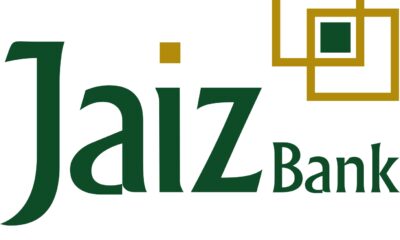- USSD Charges: ‘Banks Are Biggest Beneficiaries’, Telcos Insist
Telecommunication companies have reacted to the Bank CEO’s statement on alleged double-billing for financial transactions through the Unstructured Supplementary Service Data (USSD) channel.
The Association of Licensed Telecommunication Operator of Nigeria (ALTON) said the banks are the biggest beneficiaries of the USSD charges.
MTN Nigeria had recently sent a message to subscribers that it will start charging them for USSD access to banking services.
“Yello, please note that from October 21, we will charge N4 per 20 seconds for the USSD access to banking services. Thank you,” the message reads.
However, Body of Bank CEOs on Monday denied having any knowledge of the direct USSD access charge to customers.
“Our attention has been drawn to SMS sent on Saturday, October 19, by MTN Nigeria Communications PLC (“MTN”) to customers of banks in Nigeria in respect of the above.
“That the banks did not ask MTN to start charging customers as contained in the text message. The decision on whether, and what amount, to charge a customer for accessing USSD is entire that of the telco company, in the same way, a customer is billed for calls, SMS, and data.
“MTN is the only Telco that is yet to implement end-user billing which is the standard practice for customer-initiated transactions. This is despite the fact that the banks, working with the Central Bank of Nigeria (CBN), have engaged MTN over a period of more than one year to try and bring down the cost of USSD to aid financial inclusion.
“That the banks are determined to pursue the National Financial Inclusion Strategy of the Federal Government of Nigeria and will continue to advocate that Telcos identify wholeheartedly with this laudable initiative and implement transparent and low pricing model in the use of USSD access codes.
Reacting on Tuesday, the telcos in a letter signed by the Chairman of ALTON, Gbenga Adebayo said the “fact that the biggest beneficiaries in the USSD value chain are the banks and that the allegation of destroying the financial inclusion strides by our members are unfounded.
“It will be impossible to connect Automated Teller Machines and Point of Sale terminals across the length and breadth of Nigeria without our members’ dedication and support.
“In addition, the cashless policy drive and the instant payment solution of the financial sector would not have been possible without our members’ support.”
Meanwhile, the Minister of Communications, Dr. Isa Pantami has directed the Nigerian Communications Commission to suspend the USSD plan by MTN.
Some telcos had reportedly initiated end-user billing for the USSD transactions due to the suspension of corporate billing by the banks.
ALTON described the end-user billing as an indirect methodology by banks in charging the USSD access fees.
“Why will the banks charge customers and not share the cost with the operators and you don’t expect the operators to charge customers? Banks continue to take the money without giving anything to the operators.”
“Given that the USSD channel has become an established and most preferred channel for the banks especially for the banked population, we state that asking the customer to pay for the USSD is akin to requesting a customer to pay a bank’s landlord access fees prior to gaining access to banking premises.”
The Central Bank Governor, Godwin Emefiele also said: “I opposed it and I have told the banks that we will not allow this to happen; the banks gave this business to the telecoms companies, and I leave the banks and the telecom companies to engage.”


 Billionaire Watch3 weeks ago
Billionaire Watch3 weeks ago
 Startups4 weeks ago
Startups4 weeks ago
 News4 weeks ago
News4 weeks ago
 News4 weeks ago
News4 weeks ago
 Bitcoin4 weeks ago
Bitcoin4 weeks ago
 Naira4 weeks ago
Naira4 weeks ago
 Forex3 weeks ago
Forex3 weeks ago
 Treasury Bills4 weeks ago
Treasury Bills4 weeks ago






















